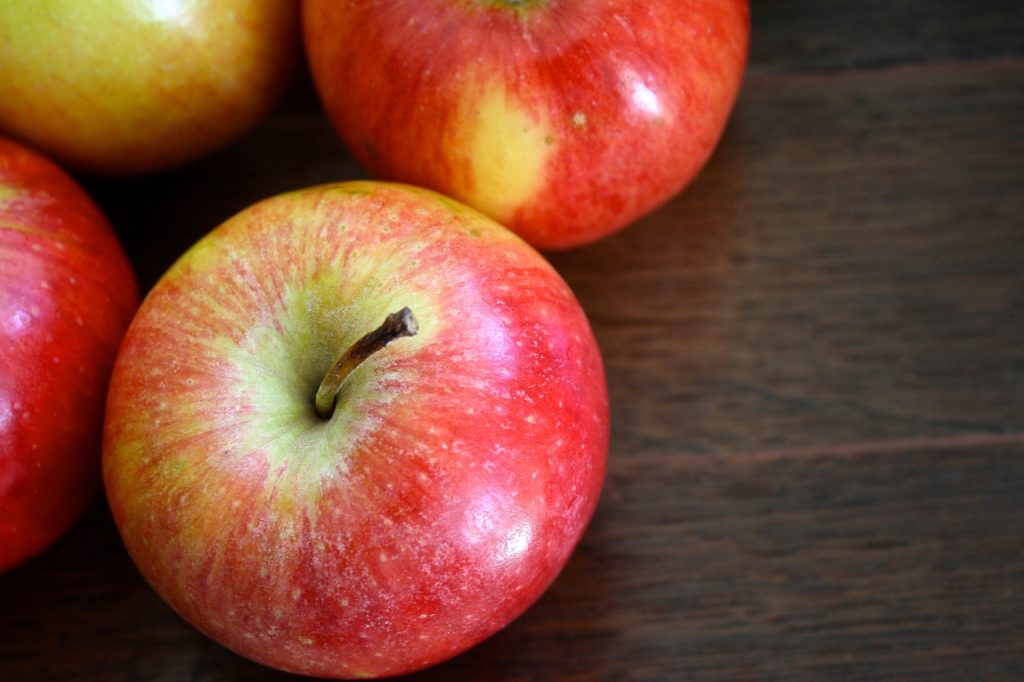Table of Contents
When it comes to healthy beverages, apple juice is often overlooked. People tend to associate it with sugary drinks that are bad for their health. However, apple juice is actually packed with numerous health benefits that make it an excellent addition to any diet. In this article, we’ll explore some of the amazing benefits of apple juice and explain why you should consider adding it to your daily routine.

What is Apple Juice?
Apple juice is a popular beverage made from the juice of apples. It is made by crushing and pressing fresh apples to extract their juice, which is then typically pasteurized and bottled. While some commercial apple juices may contain added sugars or preservatives, pure apple juice is made with 100% juice and contains no additional ingredients. Apple juice is a popular drink among adults and children alike and is often enjoyed as a refreshing and healthy alternative to sugary sodas or other beverages. In addition to its delicious taste, apple juice is also known for its many health benefits, which we’ll explore in this article.
Nutrient Facts of Apple Juice
- Calories: 117
- Total fat: 0.5 g
- Saturated fat: 0 g
- Trans fat: 0 g
- Cholesterol: 0 mg
- Sodium: 7 mg
- Total Carbohydrates: 28 g
- Dietary fiber: 0.5 g
- Sugars: 24 g
- Protein: 0.5 g
- Vitamin C: 73% of the Daily Value (DV)
- Potassium: 6% of the DV
- Folate: 2% of the DV
- Vitamin K: 5% of the DV
Benefits of Apple Juice
Boosts Immune System
Apple juice is rich in antioxidants, which help to fight off free radicals and boost your immune system. This makes it an excellent beverage to drink during the colder months when colds and flu are more common.
Improves Digestive Health
Drinking apple juice can help to improve your digestive health. The pectin in apples can help to regulate your digestive system, making it easier for your body to absorb nutrients from the food you eat.
Lowers Cholesterol
Research has shown that drinking apple juice can help to lower your cholesterol levels. This is because apples contain a type of soluble fiber called pectin, which binds with cholesterol and removes it from your body.
Reduces Risk of Cancer
Apple juice is rich in flavonoids, which have been shown to reduce the risk of certain types of cancer. Research has shown that regularly drinking apple juice can help to reduce the risk of lung cancer, breast cancer, and colon cancer.
Helps with Weight Loss
If you’re looking to lose weight, drinking apple juice can be a great addition to your diet. It’s low in calories and can help to fill you up, making it easier to stick to a healthy eating plan.
Promotes Heart Health
The antioxidants in apple juice can help to protect your heart and reduce the risk of heart disease. Additionally, the soluble fiber in apples can help to lower blood pressure and cholesterol levels.
Boosts Brain Function
Apple juice is a good source of quercetin, which is a flavonoid that has been shown to improve cognitive function and protect against Alzheimer’s disease.
Supports Bone Health
Apples contain a nutrient called boron, which is important for bone health. Drinking apple juice can help to increase your boron intake and promote strong bones.
Prevents Dehydration
Drinking apple juice can help to prevent dehydration, particularly in children who may not drink enough water. Apple juice contains a high percentage of water, as well as electrolytes, which can help to keep you hydrated.
Improves Skin Health
The antioxidants in apple juice can help to protect your skin from damage caused by free radicals. Additionally, drinking apple juice can help to keep your skin hydrated, which can reduce the appearance of fine lines and wrinkles.
Regulates Blood Sugar
The soluble fiber in apples can help to regulate your blood sugar levels and reduce the risk of diabetes. Drinking apple juice made from whole apples (with the pulp included) is a better option for regulating blood sugar levels than juice made from apple concentrate.
Provides Nutrients
Apple juice is a good source of vitamin C, which is important for immune function and skin health. It also contains potassium, which is important for heart health, and other important nutrients like folate and vitamin K.
Apple Juice useful in Pregnancy

Apple juice can be a beneficial addition to a pregnant woman’s diet, as it is a good source of important nutrients like vitamin C, potassium, and folate. Here are some of the ways that apple juice can be useful during pregnancy:
Provides important nutrients
Apple juice is a good source of vitamin C, which is important for immune function and helps your body absorb iron. It also contains potassium, which can help to regulate blood pressure and support heart health. Folate is another important nutrient found in apple juice, which can help to prevent neural tube defects in the developing fetus.
Relieves constipation
Constipation is a common problem during pregnancy, and apple juice can help to alleviate this issue. The pectin in apples can help to regulate digestion and promote regular bowel movements.
Keeps you hydrated
Drinking enough fluids during pregnancy is important for staying hydrated and maintaining a healthy pregnancy. Apple juice can help to prevent dehydration, as it contains a high percentage of water as well as electrolytes.
Boosts immune system
During pregnancy, a woman’s immune system is suppressed to protect the developing fetus. Drinking apple juice, which is rich in antioxidants, can help to boost your immune system and protect against illness.
Provides energy
Pregnant women need extra energy to support the growth and development of the fetus. Apple juice is a good source of natural sugars, which can provide a quick boost of energy when needed.
Healthy Recipes with Apple Juice

Apple-Cinnamon Oatmeal
Combine 1 cup of steel-cut oats, 2 cups of water, 1 cup of apple juice, and 1 tsp of cinnamon in a saucepan. Bring to a boil, then reduce heat and simmer for 20-30 minutes, stirring occasionally. Serve hot with your favorite toppings.
Apple-Carrot-Ginger Juice
In a juicer, combine 2 apples, 4 medium carrots, and 1 inch of fresh ginger root. Juice the ingredients together and enjoy immediately.
Apple-Braised Chicken
In a skillet, brown 4 chicken thighs on both sides. Remove chicken from skillet and set aside. Add 1 diced onion and 2 diced apples to the skillet and cook until tender. Add 1 cup of apple juice and bring to a boil. Return chicken to skillet and simmer until chicken is cooked through and tender.
Apple-Quinoa Salad
Cook 1 cup of quinoa according to package directions. In a separate bowl, whisk together 1/4 cup of apple juice, 2 tbsp of olive oil, and 1 tbsp of Dijon mustard. Combine cooked quinoa with 1 diced apple, 1/2 cup of chopped walnuts, and 1/4 cup of dried cranberries. Toss with the dressing and serve.
Apple-Ginger Smoothie
In a blender, combine 1 apple, 1 banana, 1 cup of baby spinach, 1 inch of fresh ginger root, 1 cup of apple juice, and a handful of ice. Blend until smooth and enjoy immediately.
FAQs
Q. Is it better to drink apple juice or eat apples?
A. While both are good for you, drinking apple juice is a more efficient way to consume the nutrients found in apples. This is because the juice is more concentrated than eating the fruit whole.
Q. Is apple juice high in sugar?
A. Some brands of apple juice can be high in added sugars. However, if you choose a brand that is 100% juice with no added sugars, it can be a healthy beverage to add to your diet.
Q. How much apple juice should I drink per day?
Side Effects of Apple Juice
A. It’s recommended that you drink no more than 4-6 ounces of apple juice per day.
Tooth decay
Apple juice, like other fruit juices, is high in natural sugars which can contribute to tooth decay if consumed in excess. It’s important to drink apple juice in moderation and to practice good oral hygiene.
Digestive issues
Some people may experience digestive issues like diarrhea or bloating when consuming apple juice, particularly if they have a sensitivity to apples or fructose.
Elevated blood sugar
Apple juice is high in natural sugars, which can cause a spike in blood sugar levels when consumed in excess. This can be particularly concerning for people with diabetes or other blood sugar-related conditions.
Allergic reactions
Some people may have an allergic reaction to apples or apple juice, which can cause symptoms like hives, itching, or difficulty breathing.
Pesticide residues
Apples are one of the most heavily sprayed crops, and traces of pesticides may be present in apple juice. It’s important to choose organic apple juice or juice made from apples that have been thoroughly washed to minimize pesticide exposure.
Conclusion
Apple juice is more than just a sweet treat. It’s packed with numerous health benefits that make it an excellent addition to any diet. Whether you’re looking to boost your immune system, improve your digestive health, lower your cholesterol, reduce your risk of cancer, or lose weight, incorporating apple juice into your daily routine can help you achieve your goals. So why not add a glass of apple juice to your morning routine and enjoy the many benefits it has to offer?















